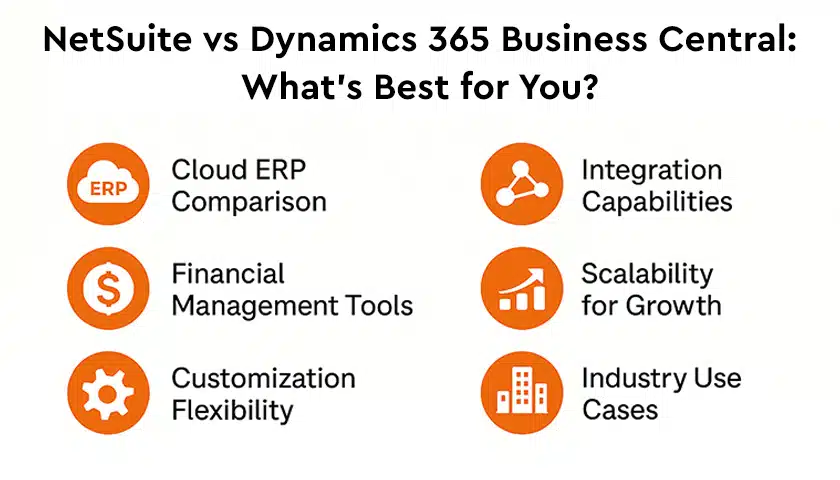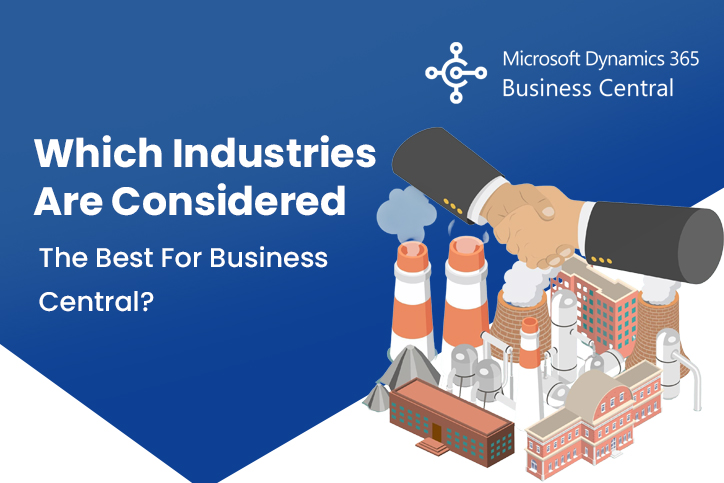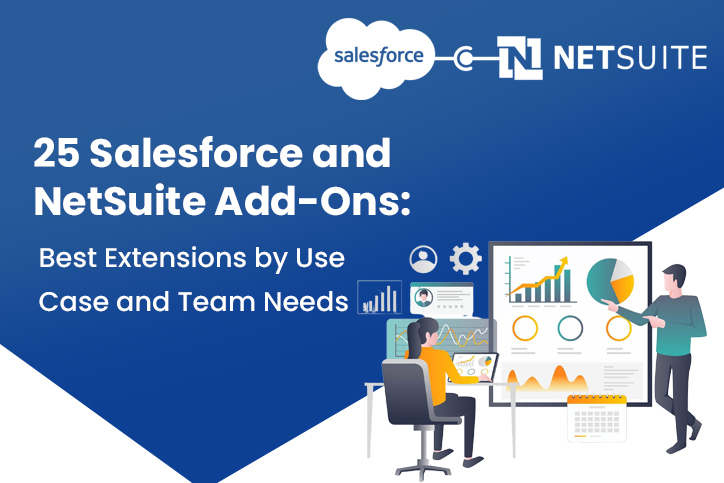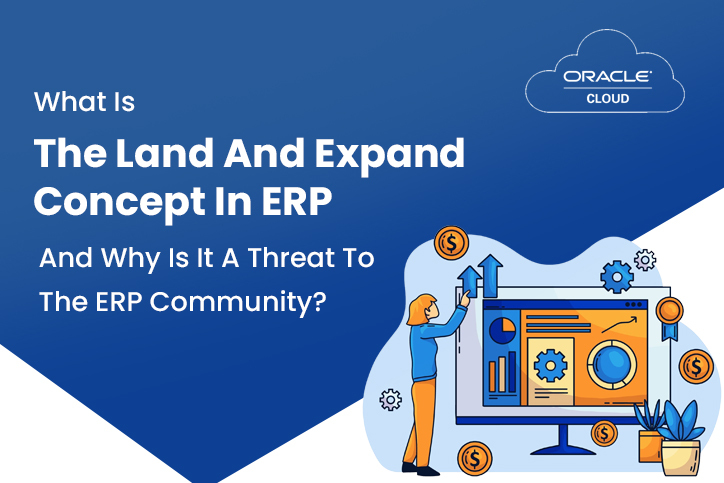When evaluating ERP systems, two standout contenders often dominate the conversation: NetSuite and Microsoft Dynamics 365 Business Central. Each brings a unique set of capabilities tailored to optimize business operations, streamline workflows, and foster growth. But here’s the catch, what works brilliantly for one organization might be a mismatch for another.
This detailed comparison of NetSuite vs Dynamics 365 Business Central helps you decode the strengths, use cases, and limitations of each platform. Whether you’re aiming to enhance financial control, automate supply chain management, or scale your operations internationally, this guide gives you the clarity to make the right ERP investment.
We’ll explore core functionality, integrations, implementation strategies, pricing, and real-world applicability—providing not just a side-by-side comparison but a strategic lens to assess what truly fits your business goals.
Quick Snapshot: NetSuite vs Dynamics 365 Business Central
| Feature | NetSuite | Dynamics 365 Business Central |
|---|---|---|
| Deployment | Cloud-only | Cloud & On-premise |
| Best For | Fast-growing mid size to enterprise-level companies | SMBs to Mid-size companies |
| UI/UX | Intuitive and highly customizable | Familiar Microsoft interface |
| Integration Support | Extensive, open API-based | Seamless Microsoft ecosystem integration |
| Pricing | Subscription-based, modular | Tiered pricing, user-based |
| Implementation Time | 3–6 months (varies) | 2–4 months (faster setup) |
Why the ERP Decision Matters?
ERP platforms are not just software—they are business-critical frameworks that support finance, operations, human resources, and customer service. A misaligned ERP system can slow down processes, limit visibility, and increase operational overhead. Conversely, a well-matched ERP enhances agility, productivity, and decision-making power.
Let’s dive into the key aspects of choosing between NetSuite vs Dynamics 365 Business Central.
1. Functional Capabilities
NetSuite
- Full-suite ERP with financials, CRM, e-commerce, and PSA (Professional Services Automation)
- Strong multi-entity accounting and global consolidation
- Advanced order, inventory, and procurement management
- Automated billing, subscription management, and revenue recognition
- Native reporting and dashboards with real-time KPIs
Dynamics 365 Business Central
- Integrated financial management with budgeting and cash flow forecasting
- Inventory, warehousing, and light manufacturing
- Project management, sales, and service module integration
- Native integration with Microsoft Power BI and Excel
- Workflow automation via Power Platform
Verdict: NetSuite’s financial depth and automation capabilities make it ideal for companies needing global scalability and real-time reporting. Business Central is a fit for SMBs that need a cost-effective, user-friendly system integrated into the Microsoft environment.
2. Industry Fit & Use Cases
NetSuite is preferred in:
- SaaS & subscription-based models
- E-commerce and retail
- Services-based businesses with project accounting
- Multi-location and multinational firms
Business Central is ideal for:
- Distribution & logistics
- Light manufacturing and retail
- Construction and service companies
- Businesses already using Microsoft 365 products
Pro Insight: NetSuite scales better across complex industries, while Dynamics 365 Business Central supports process-centric industries with deep Microsoft ties.
3. Integration Ecosystem & API Capabilities
NetSuite Integration Services
NetSuite is renowned for its open architecture. With robust REST and SOAP APIs, it allows seamless integration with CRMs, third-party apps, e-commerce platforms, and analytics tools. Businesses leverage NetSuite integration services to ensure synchronized workflows and centralized data.
Dynamics 365 Business Central Integrations
Its strongest point is tight interoperability with Microsoft solutions—Outlook, Teams, Excel, SharePoint, and Azure. These native integrations make Business Central highly appealing for companies already embedded in the Microsoft ecosystem.
Key Takeaway: NetSuite offers platform-agnostic integrations; Business Central wins in Microsoft-native environments.
4. Customization & Usability
- NetSuite: Advanced customization with SuiteScript, SuiteBuilder, and SuiteFlow. Enables development of custom workflows and dashboards tailored to different business roles.
- Business Central: Customization is enabled through AL extensions and low-code tools in the Power Platform. It’s easier for non-developers familiar with Excel or Power Apps.
User Experience Tip: If your team prefers out-of-the-box usability and works in Microsoft, Business Central offers a lower learning curve.
5. Scalability & Growth Potential
NetSuite’s one-database architecture allows it to manage multiple subsidiaries, currencies, tax regulations, and compliance frameworks under one global platform. It’s engineered for scale.
Business Central handles regional growth well and offers extensions through Microsoft AppSource. However, for complex enterprise use, additional Microsoft tools may be required.
Growth Advisory: For international expansion and complex entity structures, NetSuite remains the better enterprise-grade choice.
6. Implementation Strategy & Support Options
Choosing the right implementation partner is critical:
- SoftArt, a trusted name among NetSuite implementation partners UAE, delivers tailored deployment strategies, industry best practices, and end-user training.
- As a recognized Microsoft Dynamics 365 Business Central partner UAE, we ensure faster adoption and minimal disruption through structured consulting and support.
Best Practice: Define clear implementation milestones, involve cross-functional stakeholders early, and prioritize data migration and change management.
7. Cost Structure & Licensing
NetSuite:
- Modular pricing based on user roles and features selected
- Upfront licensing, implementation, and ongoing support costs
- Generally higher TCO but includes full-suite capabilities
Business Central:
- Tiered pricing (Essentials & Premium)
- Charged per user/month with lower entry point
- Additional costs for Power Platform licenses or advanced customizations
Budgeting Insight: Business Central suits budget-conscious teams. NetSuite is an investment in scale and future-proofing.
8. Reporting, BI & Data Insights
- NetSuite: Offers SuiteAnalytics for embedded dashboards, saved searches, and KPI tracking. Real-time visibility across entities.
- Business Central: Integrated with Power BI, enabling rich visual dashboards, customizable KPIs, and Excel-based reporting.
Decision Tip: If BI integration is a priority and you’re already using Microsoft Power BI, Business Central wins. If you’re seeking unified financial visibility across multiple operations, NetSuite excels.
9. Data Privacy, Compliance & Security
- NetSuite: Enterprise-grade compliance with SOC 1/2, GDPR, ISO/IEC 27001 certifications
- Business Central: Inherits Microsoft Azure’s comprehensive security framework, built-in compliance tools
Both platforms offer role-based access controls, audit trails, and secure data environments.
Security Insight: Let your compliance obligations and data residency requirements guide your ERP security decision.
Making the Final Decision
Choose NetSuite if:
- You need a globally scalable ERP
- Your business model is subscription, project-based, or e-commerce heavy
- You want built-in financial consolidation and advanced reporting
Choose Dynamics 365 Business Central if:
- You’re an SMB or mid-sized business
- You’re already using Microsoft 365 tools
- Your operational needs are straightforward with room for growth
Conclusion: What’s Best for You?
ERP isn’t just software—it’s a strategic business enabler. The NetSuite vs Dynamics 365 Business Central decision should stem from your business goals, operational complexity, team readiness, and growth trajectory.
For high-growth, multi-entity enterprises, NetSuite offers unmatched financial and operational control. For companies seeking fast deployment, ease of use, and native Microsoft compatibility, Dynamics 365 Business Central shines.
With experience across diverse industries, SoftArt delivers tailored implementation and consulting services that empower businesses to realize their ERP vision. Whether your path leads to NetSuite or Business Central, success lies in strategic planning, the right partner, and a clear understanding of your needs.
Need Expert Help to Choose the Right ERP? Schedule a strategy call with the consultants at SoftArt to evaluate your ERP readiness and explore custom deployment options.
Make your ERP work harder—so you don’t have to.
Frequently Asked Questions:
Q1. What is the main difference between NetSuite and Dynamics 365 Business Central?
A: NetSuite is a cloud-only ERP designed for high-growth and enterprise businesses, while Dynamics 365 Business Central offers both cloud and on-premise options, best suited for SMBs looking for seamless Microsoft integration.
Q2. Which ERP is better for global operations?
A: NetSuite is more suitable for global businesses due to its multi-subsidiary, multi-currency, and tax compliance capabilities built into a unified platform.
Q3. Can both NetSuite and Business Central integrate with third-party tools?
A: Yes. NetSuite offers flexible, open API-based integrations, while Business Central integrates deeply within the Microsoft ecosystem and supports Power Platform tools.
Q4. How long does ERP implementation take for both platforms?
A: NetSuite implementations generally take 3–6 months, depending on complexity. Business Central can be deployed faster, typically in 2–4 months.
Q5. What factors should I consider when choosing between the two?
A: Consider your business size, growth plans, budget, existing tech stack, and industry-specific needs before selecting between NetSuite and Business Central.









